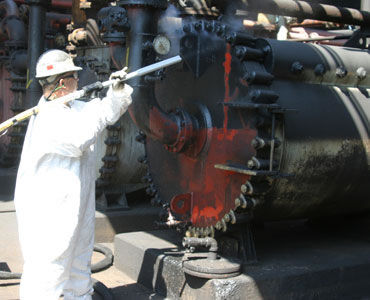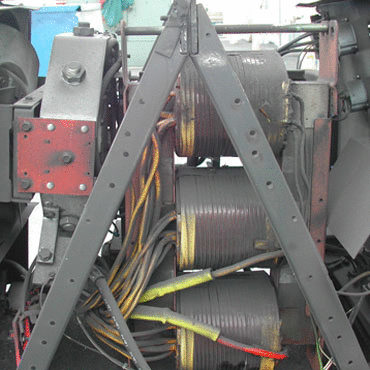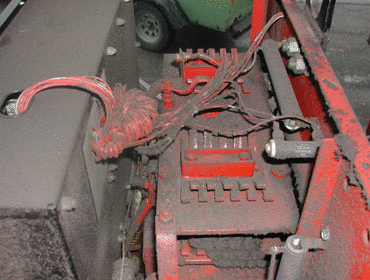Dry ice blast cleaning does not require the use of harsh chemicals and is safe to use on production equipment, printing presses, robotic lines, electric motors, fans, walls, floors, etc. It will not etch most substrate materials being cleaned and leaves behind no additional waste or residue. Dry ice blast cleaning is even safe for use in food and drug processing facilities, as it also works as a disinfectant. Most equipment and machinery can be cleaned in place, which eliminates costly disassembly and reassembly.
Dry ice blast cleaning is an attractive alternative to sandblasting because it does not erode or wear away the targeted surface as traditional grit media and wire brushes do. The surface integrity and critical tolerances are preserved, and equipment will not have to be replaced due to surface erosion.
It is also an improvement over steam and water blasting. Electrical parts and generators cleaned by dry ice blast cleaning can be immediately put back into service without waiting to dry. Radioactive contaminate removal doesn’t require large storage containers for contaminated water. Mold and mildew removal is far more complete, with less chance for regeneration due to moisture. Dry ice blast cleaning removes more algae, sea slime and mussels on boat hulls than water blasting.
Finally, dry ice blast cleaning can be used in place of many environmentally damaging solvents. These chemicals include trichlorethane, methylene chloride, perchlorethane, orhtodichlorobenzene, cresylic acid, and caustic sodas. Since dry ice evaporates completely as a gas, it leaves no waste. When dry ice blast cleaning replaces hazardous chemical cleaners, the disposal costs of those chemicals are also eliminated.








